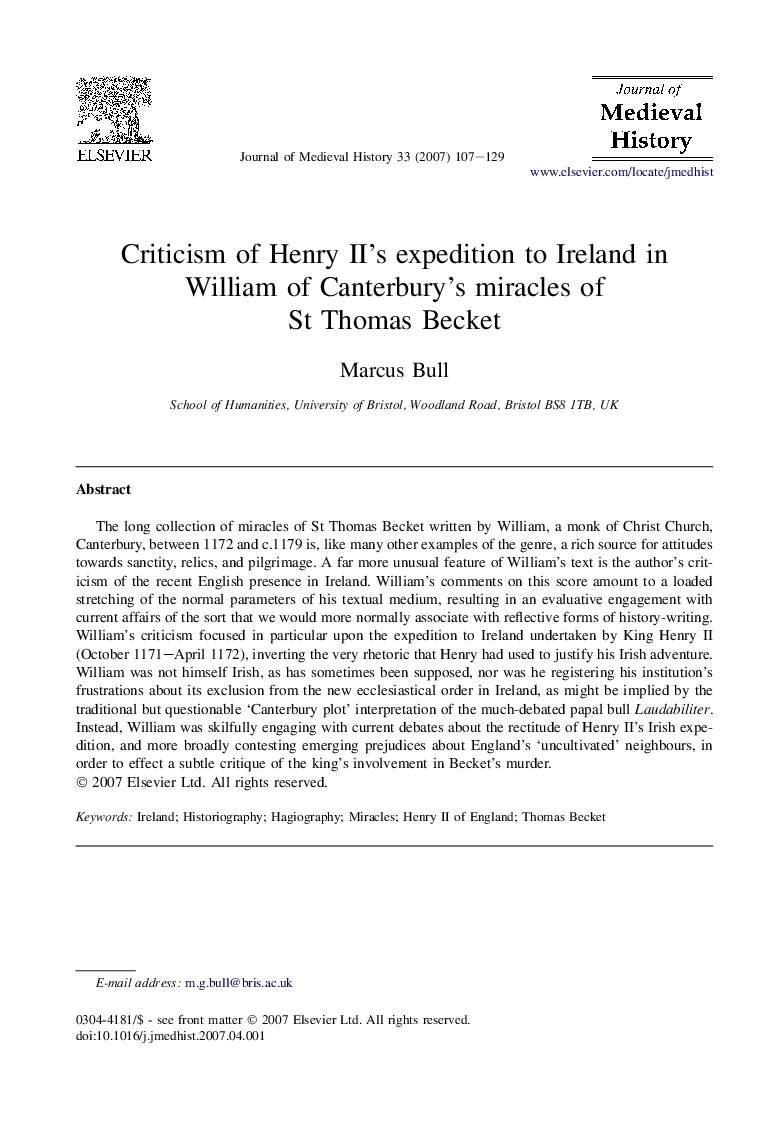| کد مقاله | کد نشریه | سال انتشار | مقاله انگلیسی | نسخه تمام متن |
|---|---|---|---|---|
| 1159973 | 959744 | 2007 | 23 صفحه PDF | دانلود رایگان |

The long collection of miracles of St Thomas Becket written by William, a monk of Christ Church, Canterbury, between 1172 and c.1179 is, like many other examples of the genre, a rich source for attitudes towards sanctity, relics, and pilgrimage. A far more unusual feature of William's text is the author's criticism of the recent English presence in Ireland. William's comments on this score amount to a loaded stretching of the normal parameters of his textual medium, resulting in an evaluative engagement with current affairs of the sort that we would more normally associate with reflective forms of history-writing. William's criticism focused in particular upon the expedition to Ireland undertaken by King Henry II (October 1171–April 1172), inverting the very rhetoric that Henry had used to justify his Irish adventure. William was not himself Irish, as has sometimes been supposed, nor was he registering his institution's frustrations about its exclusion from the new ecclesiastical order in Ireland, as might be implied by the traditional but questionable ‘Canterbury plot’ interpretation of the much-debated papal bull Laudabiliter. Instead, William was skilfully engaging with current debates about the rectitude of Henry II's Irish expedition, and more broadly contesting emerging prejudices about England's ‘uncultivated’ neighbours, in order to effect a subtle critique of the king's involvement in Becket's murder.
Journal: Journal of Medieval History - Volume 33, Issue 2, June 2007, Pages 107–129